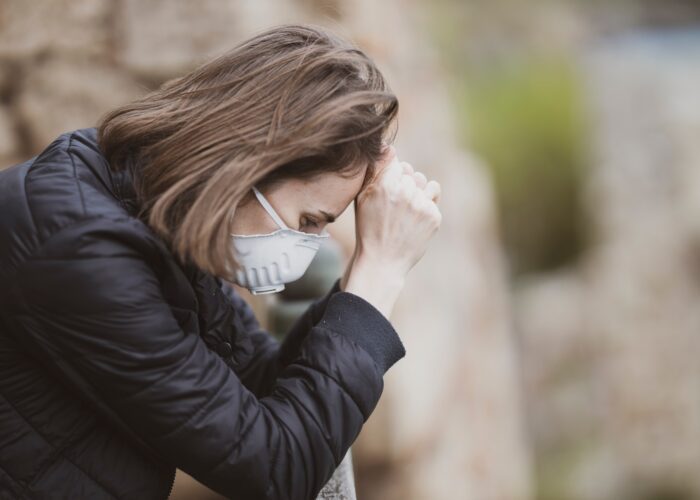As lockdown restrictions begin to ease, many people may be experiencing conflicting emotions.
Some will be feeling nervous and apprehensive about what the future holds, and what returning to normality might actually look like.
A recent UK survey by the Office for National Statistics found almost half (49.6%) of the population have reported high levels of anxiety about life after lockdown.
Chartered Psychologist Dr Tara Quinn-Cirillo has many years of experience helping people manage their emotional wellbeing and insists these feelings are completely normal.
She told JMU Journalism: “Anxiety is a very normal thing, and I think a lot of people will be feeling the same at the moment, so it’s really healthy for people to start having discussions around feeling worried for the future and how it looks for them.”
Dr Quinn-Cirillo acknowledged that there will be some people who will want to take things a bit slower and are naturally apprehensive.
She explained how our body gets used to things quite quickly, like coping with lockdowns. Then when it has to do something new, it takes a bit of time for the brain and the neuropathways to realise that they need to relearn behaviours such as being with other people again.
Even though before the pandemic, socialising may have been something that came naturally, Dr Quinn-Cirillo said that it may take some people a small amount of time to learn those behaviours again.
She said: “The idea of coming out of lockdown and going back to what we call pre-lockdown life again can cause a bit of worry for people in terms of what if I don’t want to meet lots of people again? What if I don’t want to do lots of socializing? What if I don’t want to be in busy restaurants or busy shops again?”

Dr Quinn-Cirillo explained that in terms of post lockdown anxiety symptoms, it’s important to look out for your ‘anxiety footprint.’
This means that most people who have experienced anxiety, tend to know what it looks like for them and the things to keep an eye out for, such as sweaty hands or a change in breathing. It’s being aware of your normal baseline, and then when you’re starting to spot new symptoms of anxiety again.
Dr Quinn-Cirillo said: “If you’re perhaps noticing people on social media, or in WhatsApp groups, starting to plan things like holidays and events for when lockdown is over, and you’re experiencing feelings of apprehension and worrying thoughts about that, that might be an indicator of how you really feel about coming out of lockdown.
She added: “It’s very different for every person. There will be no one way that this will present for people.”
The Royal College of General Practitioners has reported increasing numbers of patients with anxiety, depression, and trauma symptoms since the pandemic.
This raises concerns over the impact of COVID-19 on mental health, and the likely increase in anxiety disorders once lockdown restrictions are eased.
In terms of coping with this type of anxiety, Dr Quinn-Cirillo suggested making a list of dates and things you may been invited to, highlighting the importance of it being up to you whether you say no to things and are in control of choosing when you want to leave the house.
She said: “If you’re feeling overwhelmed, rather than thinking about and heading straight for June and July, just look at stage one and think about who you might like to meet one-on-one outside for a coffee or a picnic.
“Then, if you’re feeling more able, perhaps look at stage 2, and just focus on what you think you can manage at the moment.”

